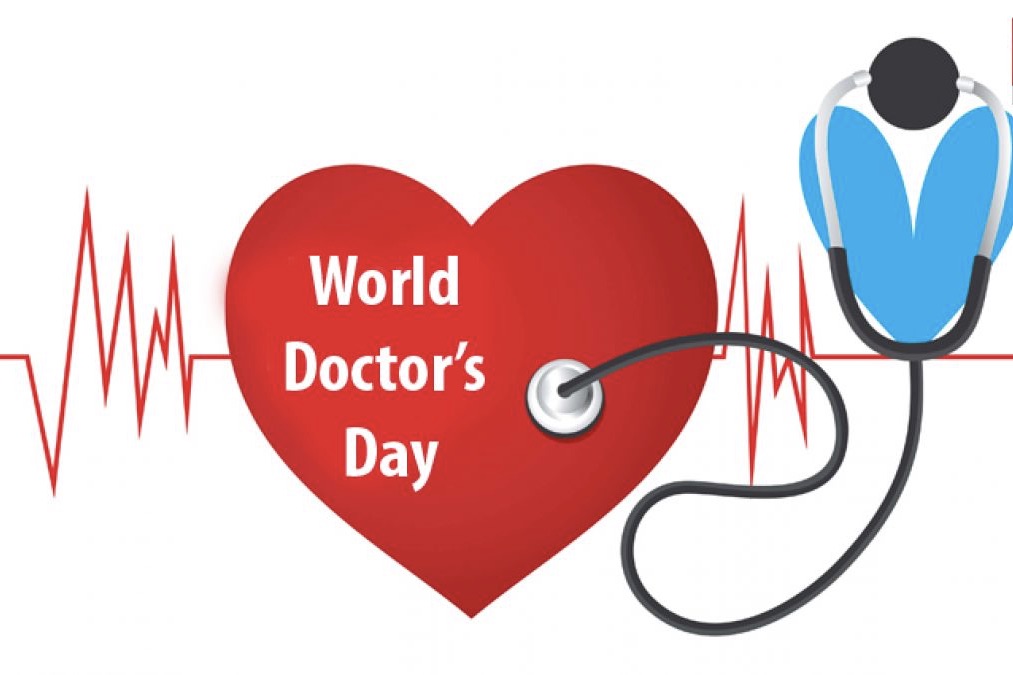
The B-word Straight out of medical school, when I started practice in a small town, the mention of it would make me puff up with pride and gratitude. After a few years in the rut, I started taking it with a pinch of salt, knowing that the sentiment could change at the drop of a hat ( or blood pressure! ). Thirty years later, I am wary of the word, in fact I forbid my patients to call me ‘ Bhagwan’ or anyone remotely close. I prefer that they treat me as a fellow being and allow me the occasional folly and frailty inherent to the human species . As my colleagues will agree, playing God is exhausting and comes at a heavy price.
Medicine is the only
profession which relentlessly toils to eradicate the reason of its existence.
Death is the sole certainty in life and yet doctors continuously strive to
fight it. A doctor spends the better part of his youth pouring over books,
borrows money to set up a health facility , seldom attends social functions, is
rued for missing family occasions, skips countless meals and spends sleepless
nights treating patients. Sadly, his stress doesn’t end here, he has to worry
about outdated laws, frivolous law suits, and even lawlessness. Despite this,
and because of a unscrupulous few, the whole community is viewed with
increasing disdain and suspicion. Much is being said about how a noble
profession has become a commercial money making venture. The sad fact is, that
with modern laws in place, where the patient is defined as a consumer and the
doctor a service provider, there is not much room left for nobility.
Recently when I asked an elderly patient to pay six hundred for an ultrasound examination he reminded me that bauji, my father in law, would charge less than that for a whole ‘season’ of treatment for his entire family. The good old days, when it was common for farmers to settle their medical bills after selling crops. And although there was truth in his lament it is not the whole truth. Bauji operated out of a small clinic with two assistants. Diagnostic aids were primitive and few. An E.C.G machine, X-ray and some basic lab tests were all he used to reach a diagnosis, apart from a stethoscope and experience. That he survived fifty-five years of practice uneventfully shows his good fortune as much as his wisdom.
In contrast we have a twelve
bedded hospital with a well equipped I.C.U, operation theatre and lab. The
running cost of the establishment itself ensures that we can’t charge a
pittance like him.
Also, with the consumer protection act hanging like Damocles sword over our
heads we are increasingly forced to practice defensive medicine. Good faith has
been replaced by evidence based medicine which helps the doctor stand ground if
he is sued in court. Though scientifically more sound, it is also more
expensive. Earlier doctors would rely on their experience, now they depend on
investigations and protocols to corroborate their diagnosis. And though this
has increased the cost, it is easy to see that medical services have improved
too. The life expectancy has risen and the quality of life is better. This has
been possible with better diagnostic tools, safer procedures and effective
medicines. With India’s public health sector in shambles the patient is
compelled to bear the cost of treatment in private hospitals.
The escalating cost of healthcare is the chief cause of resentment against the medical community. This has also led to disturbing incidents of violence against doctors. A recent study by I.M.A shows that over 75% of doctors in India have faced verbal or physical abuse. More than half of which are reported from intensive care units where mortality remains high despite expensive procedures.
A lot has been said about the desirable qualities of a doctor. An ideal doctor is expected to be empathic, competent, even tempered, have good judgment that is not clouded by commerce. He should constantly update his knowledge, always be available, place patients first and work for a pittance. It is time to educate society about the basic qualities of a good patient. An ideal patient should be trusting, compliant, grateful, willing to pay for services, non abusive, non violent and most importantly, patient! In our country an ideal doctor has been equated to God. It is time the public realises the difference between the two for however hard he tries a doctor will lose some fights. It is sad that society fails to see that a little of the doctor dies with every patient he loses.
( published in my column ‘Reading the pulse’ in the Sunday Tribune on 22/11/2015)